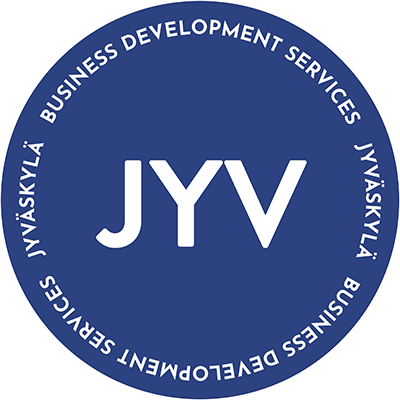
Industry renewall ecosystem
The manufacturing industry is the cornerstone of Central Finland, and leading industrial companies contribute significantly to the region's export income. In Jyväskylä, companies such as Valmet, Tana, DB Santasalo, and Moventas Gears operate. By 2030, Jyväskylä will establish the most advanced digital service cluster for manufacturing industries in Europe, called Eteläportti, which will be located south of the city. This area will provide a business environment for approximately 60 growth companies in the industrial sector and related fields.
The goal of City of Jyväskylä Business Development Services is to identify the development needs of industrial companies in the region, understand the interests of leading companies, and bring together actors from research, development, and innovation networks for collaborative development. The aim is to promote the transformation and research, development, and innovation activities of the industrial sector. It also involves implementing solutions enabled by digitalization and the latest research in companies, as well as attracting funding to accelerate transformation.
The rapidly advancing transformation in the industry creates an even greater need for innovative solutions, networks, data utilization, various collaboration and testing platforms, and skilled professionals of the new era.
Expertise areas of the ecosystem
The broadening of fiber materials and technology is led by Spinnova and Metsä in Central Finland. Jyväskylä has a long tradition of developing fiber industry and technology, dating back to the paper technology pioneered by Valmet in the 1950s and later strongly supported by VTT (Technical Research Centre of Finland).
The new opportunities in the fiber sector require investments and collaborative projects. Spinnova's technology already enables the conversion of various waste streams, such as leather and agricultural waste, into textile fibers. This is expected to increase textile customers' interest in participating in fiber-related development work to minimize environmental impact.
Fiber technologies are not limited to the textile industry but can also be widely applicable in other fields. An example is Aisti, originating from Jyväskylä, which produces wood fiber-based acoustic panels.
The war in Ukraine triggered an energy crisis in Europe, which is likely to accelerate the ongoing energy transition. The energy transition plays a central role in the strategy of the city of Jyväskylä.
The previous government's decision to gradually phase out the use of peat as an energy source is speeding up the energy transition in Central Finland, which is being financed by the JTF funding from the EU in spring 2023.
Digital solutions also create significant opportunities for optimizing energy usage and developing new solutions in the circular economy sector.
The city of Jyväskylä actively strives to promote and accelerate its carbon neutrality goals, particularly in the Eteläportti industrial area. The adoption of energy flexibility, along with other energy-efficient applications and digital tools, provides a competitive advantage for both Jyväskylä and businesses.
The advancement of coating technology encourages the replacement of plastics with various biomaterials. This creates opportunities and the need for developing various new and robust coating solutions. In Central Finland, leading companies in advanced coating include Valmet and Metsä.
The broadening use of various biomaterials, the development of coating and nanotechnology, and expertise in biomaterial handling have become essential themes in different industries due to the demand for alternative and sustainable materials, requiring innovative solutions.
Jyväskylä possesses strong expertise in the digitalization of industrial manufacturing, both among leading companies in the region such as Valmet, Valtra, Moventas, Tana, and DB Santasalo, as well as in top-level research and development competence in the area within the local universities. This expertise spans across fields such as information systems, scientific computing, data analytics, cybersecurity, well-being technologies, game technologies, and learning.
Key areas of expertise that drive the digitalization of manufacturing include 3D technologies, human and behavioral sciences, human-machine interface technologies, simulation, robotics and automation, and the Internet of Things (IoT).
The agenda of the evolving industrial ecosystem also includes accelerating smart manufacturing and promoting the green and digital transition, as well as creating conditions for the realization of Industry 5.0 - all while ensuring cyber-secure digital solutions and the resilience of industrial companies. Development work is carried out in collaboration with industrial companies in the region, Jyväskylä University and University of Applied Sciences, and other research and educational institutions.
The key areas of expertise in research and development in the region:
1) New production and manufacturing technologies:
- Hydrogen economy: Improving fuel cell technology and hydrogen purification
- Energy production and storage, including new CO2-free battery technologies
- Resource-efficient and carbon-neutral manufacturing technologies
2) New material and circular economy solutions
- Low-carbon solutions, utilization of biomass, and recovery of critical raw materials
- Characterization of material flows for improved utility
- Development of functional coating for bio-based materials
- Promotion of the use of bio-based materials
- Functionalization of bio-based textiles
4) Intelligent manufacturing and Industry 5.0
- Computational decision-making
- AI-guided systems, robotics, digital twins, resource efficiency, and production efficiency perspectives
5) Cyber-secure digital solutions for industry and society
Join us!
Collaborative ecosystem work leads to, for example, cooperation between research and business fields, bold experiments, strengthening of knowledge and expertise, new business opportunities and financing possibilities, new jobs, and globally opening doors.
Contact us!
Contact Timo directly or send a message through the adjacent form!
Timo Harju
project manager, industry renewall ecosystem
050 595 9198
timo.harju@jyvaskyla.fi
